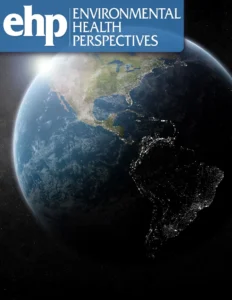
Will the leading environmental health science journal Environmental Health Perspectives lose funding and be forced to shut down due to DOGE budget cuts? It appears this will happen.
This journal publishes high quality research and information on the effects of the environment on human health. It has published research on effects on humans from forever chemicals, endocrine disruptors, flamed retardants, pesticides, air pollution, lead, arsenic, mercury, toxins in skin care products, and so much more.
It is published monthly, and is free to everyone (it is open access). For decades, the journal has received funding from the National Institutes of Health (NIH) to review studies on the health effects of environmental toxins (e.g., forever chemicals, pesticides) and publish them for free.
However, it now may be shut down due to DOGE budget cuts at NIH. The journal has already announced that it is no longer accepting articles for publication. Shutting down this journal would be a terrible loss to all of us.
By the way, two other well-regarded journals, both published by the Centers For Disease Control and Prevention (CDC), are also on the chopping block: Emerging Infectious Diseases and Preventing Chronic Disease. The first journal has cutting-edge reports on infectious disease threats (e.g., mpox viruses, Marburg virus) from around the world.
From NY Times: Citing N.I.H. Cuts, a Top Science Journal Stops Accepting Submissions
Environmental Health Perspectives, widely considered the premier environmental health journal, has announced that it would pause acceptance of new studies for publication, as federal cuts have left its future uncertain.
For more than 50 years, the journal has received funding from the National Institutes of Health to review studies on the health effects of environmental toxins — from “forever chemicals” to air pollution — and publish the research free of charge.
The editors made the decision to halt acceptance of studies because of a “lack of confidence” that contracts for critical expenses like copy-editing and editorial software would be renewed after their impending expiration dates, said Joel Kaufman, the journal’s top editor. He declined to comment on the publication’s future prospects.
“If the journal is indeed lost, it is a huge loss,” said Jonathan Levy, chair of the department of environmental health at Boston University. “It’s reducing the ability for people to have good information that can be used to make good decisions.”
Scientific journals have long been a target of top health officials in the Trump administration.
In an interview with the “Dr. Hyman Show” podcast last year, Robert F. Kennedy Jr., who is now secretary of health and human services, said he planned to prosecute medical journals under federal anti-corruption laws.
“I’m going to find a way to sue you unless you come up with a plan right now to show how you’re going to start publishing real science,” he said.
Still, the announcement regarding E.H.P. baffled researchers, who pointed out that the funding cuts seemed to conflict with the Trump administration’s stated priorities.
For instance, Mr. Kennedy has repeatedly emphasized the importance of studying the environment’s role in causing chronic diseases. The new administration has also expressed interest in the transparency and public accessibility of scientific journals, an area in which E.H.P. has been a trailblazer.
E.H.P. was one of the first “open-access” journals, allowing anyone to read without a subscription. And unlike many other open-access journals, which often charge researchers thousands of dollars to publish their work, E.H.P.’s federal support meant scientists from smaller universities could publish without worrying about a fee.
“There are multiple layers of irony here,” Dr. Levy said.
